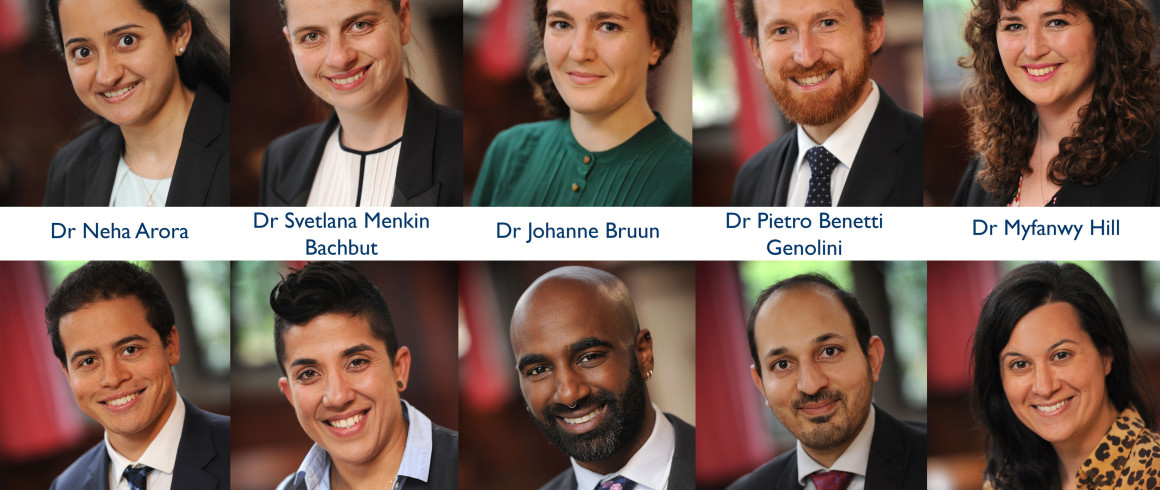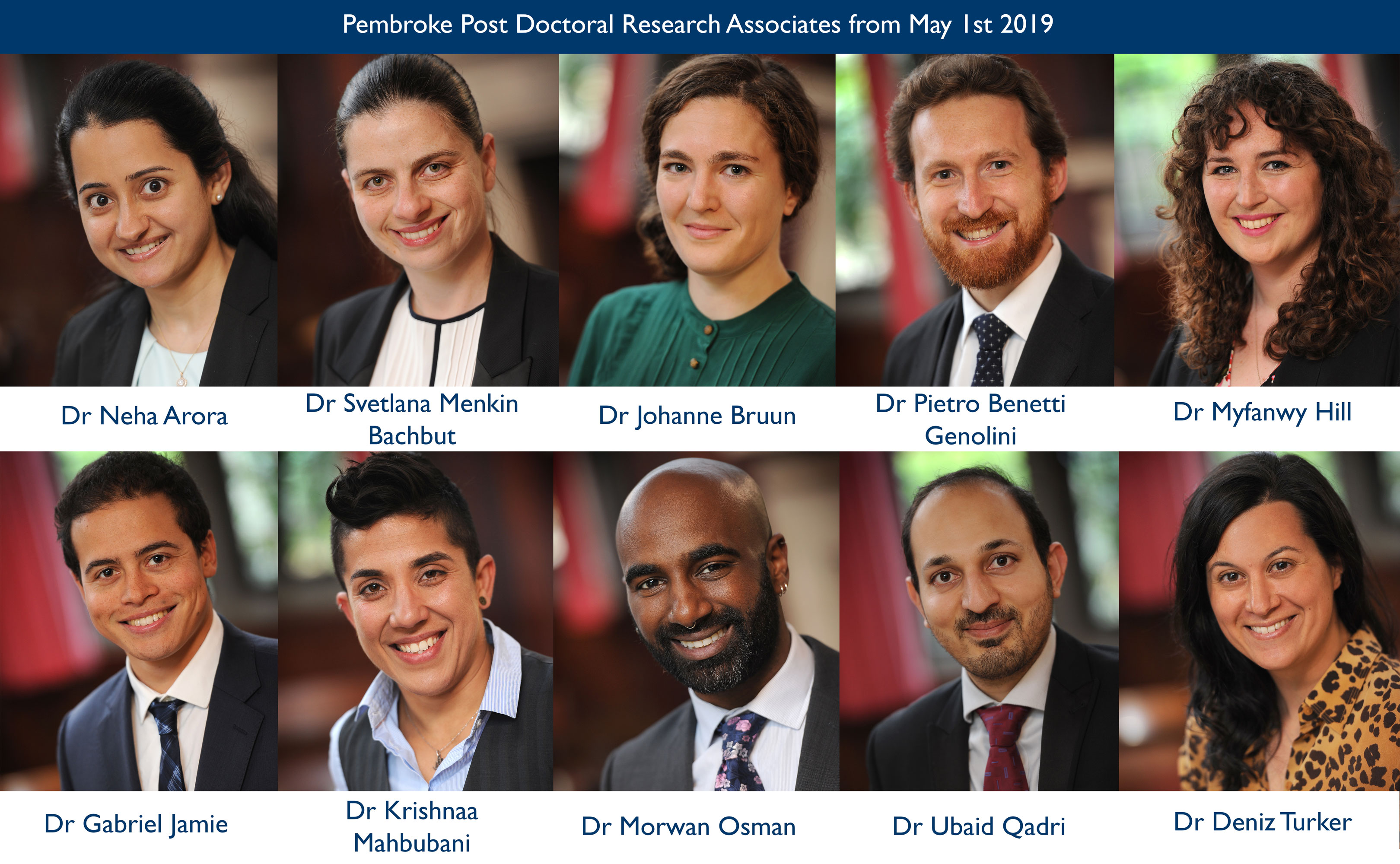Pembroke Appoints Postdoctoral Research Associates
Last month Pembroke appointed ten early career academics as Postdoctoral Research Associates (PDRAs). The role of PDRA is a brand new one for Pembroke and will give these postdoctoral researchers a college affiliation and an academic home outside their departments.
The College hopes to provide a supportive academic environment in which PDRAs can further develop their careers.
All ten PDRAs took up their posts on 1 May 2019. The posts will run for a year, but may be renewed depending on their funding and their level of involvement within the life of the College. PDRAs are entitled to one lunch or dinner twice a week at High Table; they can apply for a personal research allowance of £500 per annum; they have access to the Senior Parlour, Inner Parlour, College gardens, library, gym and sportsground. They also have a pigeonhole in the Post Room.
The position of postdoctoral researcher, colloquially known as a postdoc, is often the first professional research role an academic will have after completing their doctoral studies. They play a significant role in the University of Cambridge and make up more than 35% of its total staff. They are the fastest growing staff group: up by more than 160% since 2000. They are also the most diverse staff group by nationality, coming to Cambridge from over 90 countries around the world (including around a third who are EU/EAA nationals).
However, the overwhelming majority of postdocs are unlikely to have a college association. In 2013 the University formally recognised that more needed to be done for postdocs as a community and established the Office of Postdoctoral Affairs (OPdA). In 2014 it opened the first Postdoc Centre in Mill Lane and in 2017 a purpose-built centre at Eddington. It has subsequently created dedicated programmes for postdocs at the Careers Service and the Researcher Development Programme.
The 10 PDRAs
Dr Neha Arora - Department of Physics
Properties of new materials for application in light-emitting devices
Dr Pietro Benetti Genolini - Department of Applied Mathematics and Theoretical Physics
Physical Mathematics
Dr Johanne Bruun - Scott Polar Research Institute and Dept. of Geography
Arctic Cultures
Dr Myfanwy Hill (2015) - Wellcome-MRC Cambridge Stem Cell Institute
Following myelin regeneration in the CNS using molecular imaging
Dr Gabriel Jamie - Dept. of Zoology
Evolutionary genetics
Dr Krishnaa (Krish) Mahbubani (2005) - Dept. of Surgery
Cell extraction technology for cellular therapeutics
Dr Svetlana Menkin Bachbut - Dept. of Chemistry
Prevention of battery degradation
Dr Morwan Osman - Dept. of Medicine
Tuberculosis research
Dr Ubaid Qadri – Dept. of Engineering
Optimising ignition in unsteady reacting flows
Dr Deniz Türker - Centre of Islamic Studies, AMES and Dept. of History of Art
Mediterranean textiles and embroideries

